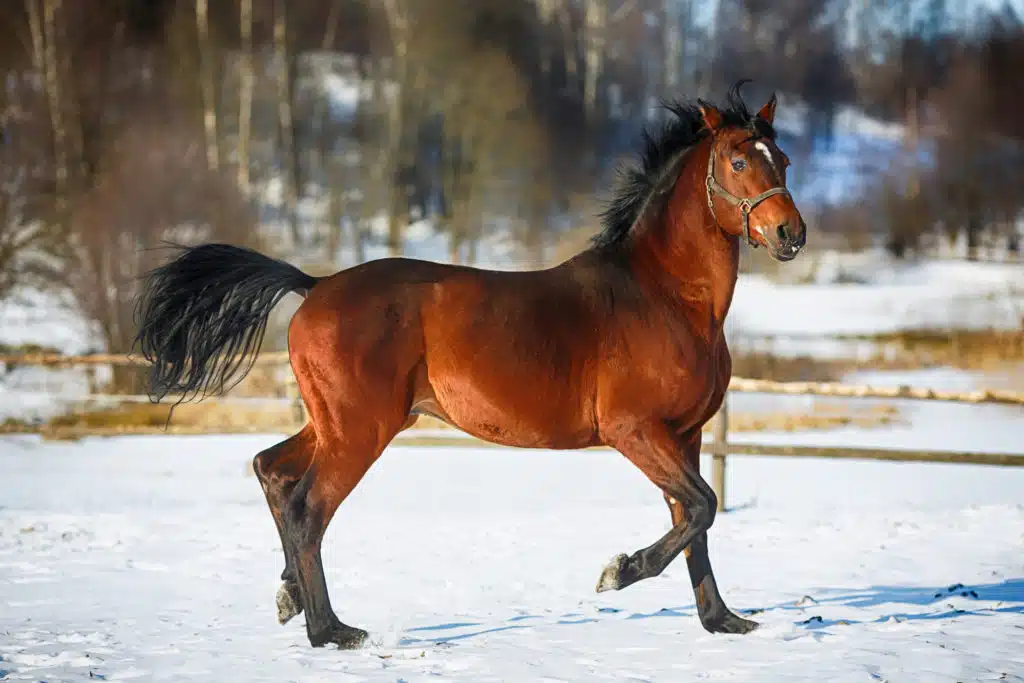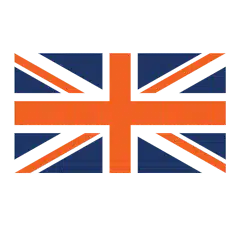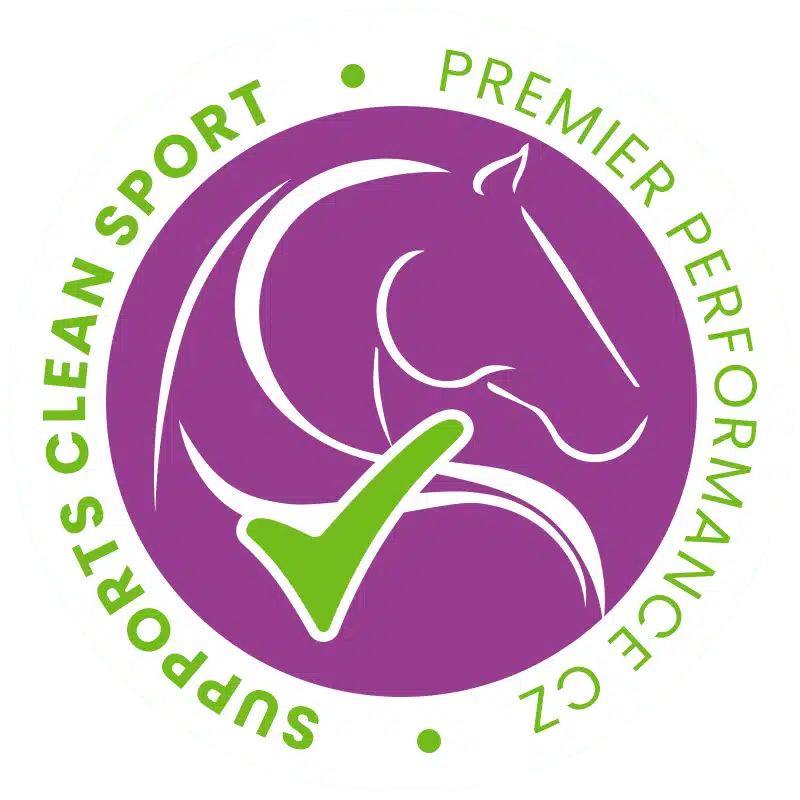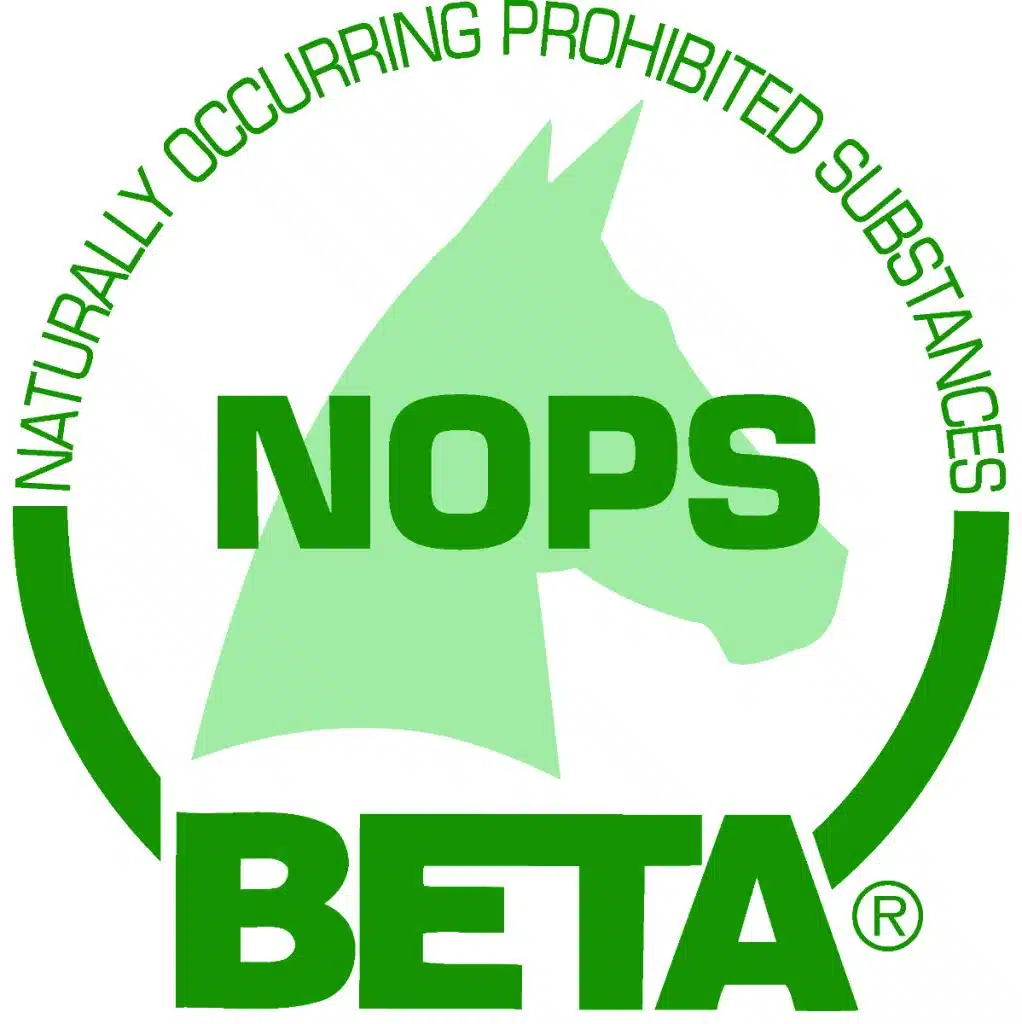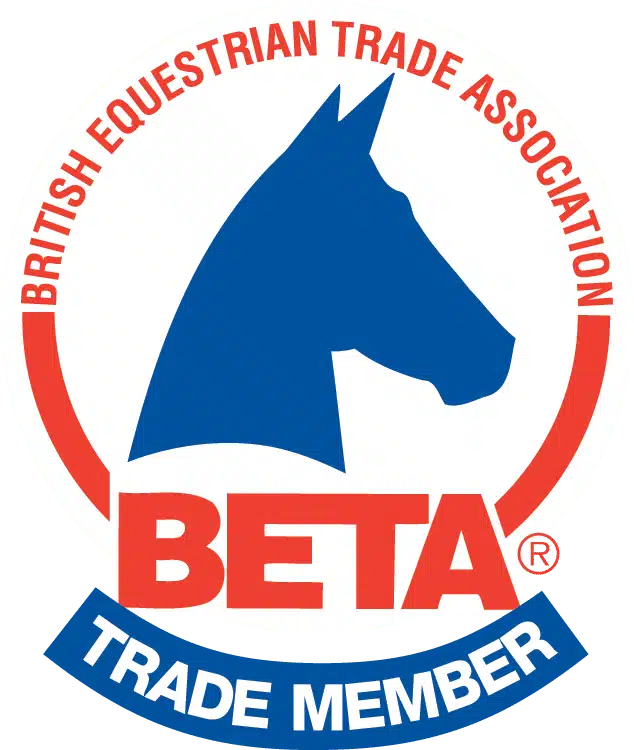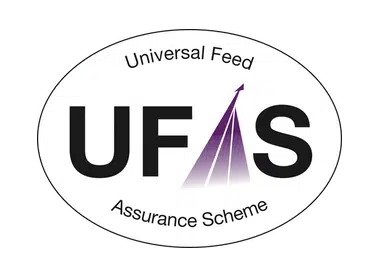There are a few areas that are important to consider in relation to feeding your horses during the autumn and winter months. In this article we’ll take a look at forage provision, meeting nutrient requirements, water intakes and monitoring your horse’s body condition during the autumn/winter.
Forage during autumn and winter
During the autumn/winter months when pasture growth is limited and pasture quality in terms of nutrients has declined many horses will need to be provided with conserved forage. The most common types of conserved forage fed to horses are hay and haylage. Some horses may be kept at pasture 24 hours a day during these months whilst others may be stabled part of the day with various lengths of turnout. If your horse is being kept out at pasture with some hay provided and you then decide to bring him/her indoors remember that changing from 24 hrs at pasture to being inside and being fed more conserved forage is a significant change to diet and management. Horses don’t cope well with change – their digestive systems take time to adapt, so if you can introduce the change gradually e.g. bring them in late evening and then turn back out early morning, and then slowly build up the length of time they are stabled overnight then that will be hugely beneficial to maintaining your horse’s gut health.
Another aspect of autumn/winter feeding is the variability of turnout depending on weather conditions; for example, if you are having to stable your horse due to lots of rain and bad weather remember to keep an eye on how much they are drinking and maybe consider soaking your hay etc. Horses spending a lot of time stabled and fed dry hay are at greater risk of developing digestive upsets.
Meeting your horse's nutrient requirements during autumn and winter
For horses that are maintained at pasture it is important to consider the amount of energy they will need in lower temperatures. A horse’s energy requirements will increase in temperatures below freezing or when there is snow and freezing rain. Therefore, you may need to provide additional forage during periods when it is very cold. A horse will eat around 2 to 2.5 % of their bodyweight per day, that’s between 10 and 15 kg for a 500 kg horse. If you find you are providing this amount to your horses and he is not eating all of the forage then you may have to consider supplementing his diet with a more energy-dense feedstuff, such as alfalfa and sugar-beet pulp or a feeding a proprietary feeding mix.
In terms of nutrient intakes, providing conserved forage will increase your horse’s energy (calorie) intake, but during the conservation process some nutrients may be lost and in particular vitamin E levels will decline. Other vitamins, such as vitamin A, will decline the longer the hay is stored. Therefore, it is recommended that horses fed a forage-only diet are supplemented with a vitamin and mineral supplement. Unlike humans, horses are fed the same diet for long periods of time and therefore any deficiencies in that diet will be more likely to impact on a horse compared to a human who eats a varied diet.
Your horse's water intake
Water is essential to many life-supporting functions, including digestion and thermoregulation. In general, a horse will drink 5 litres of water per 100 kg of bodyweight per day, so that’s 5 litres for a 500 kg horse. This amount of water is based on recommendations when horses are kept in an environment that maintains the horse’s own body temperature (-15 to 10 oC). In higher temperatures horses will drink more to stay hydrated and replenish sweat losses, whilst in low temperatures if the water source is very cold or freezing then water intakes are likely to be reduced and this can impact on hydration and also how your horse eats. It is recommended that in cold weather, water temperatures should be maintained around 4oC to encourage drinking.
It is difficult to monitor water intake in a horse if they are at pasture with other horses or if when stabled the water source is an automatic drinker. If a horse is stabled and has a water bucket provided, that is the best way to know if you horse is drinking enough. In terms of knowing if your horse is dehydrated one way of doing this is to know your horse’s vital signs (pulse, respiration and temperature). Clinical signs of dehydration are an elevated heart rate or pulse (28-40 beats per minute is normal for an adult horse), changes in gum colour and the feel of the gum (pink and moist are normal), and a decrease in the elasticity of your horse’s skin. If it takes more than a couple of seconds for the skin on the neck to retract back to normal after it is pinched then this may indicate dehydration.
Monitoring your horse's bodyweight
It is important to regularly monitor your horse’s body condition, most recommend that this is done on a monthly basis. This can be done by body condition scoring (BCS) to ensure you are providing enough feed to maintain weight during the winter months. It is also advisable to BCS after a cold and/or wet spell of weather, particularly for horses kept at pasture as they can lose weight rapidly during this type of weather. Body condition scoring essentially measures fat accumulation in horses. There have been various scales developed such as the 0-5 point scale and the 1-9 point scale. The 1-9 point scale is considered by some to be a more accurate body condition scoring system for horses as it assesses more areas of the body than the 0-5 point scale plus it uses a wider range of scale. When assessing your horse’s condition during the winter months it is important to get your hands on the horse if they have thick winter coats, because these thick coats can make a horse look in better condition than they may actually be.
Summary recommendations for feeding your horse in autumn and winter
- Ensure your horse is provided with enough forage during the autumn/winter months.
- Make any changes to the diet and management regime gradually if possible.
- If a forage-only diet is fed, then a vitamin and mineral supplement is recommended.
- Monitor water intake and ensure water does not freeze or drop to very low temperatures.
- Monitor BCS on a regular basis and adjust your horse's diet and management accordingly.
- Consult your Vet or Nutritionist for advice, if required.
Article written for Premier Performance by Professor Jo-Anne Murray.
